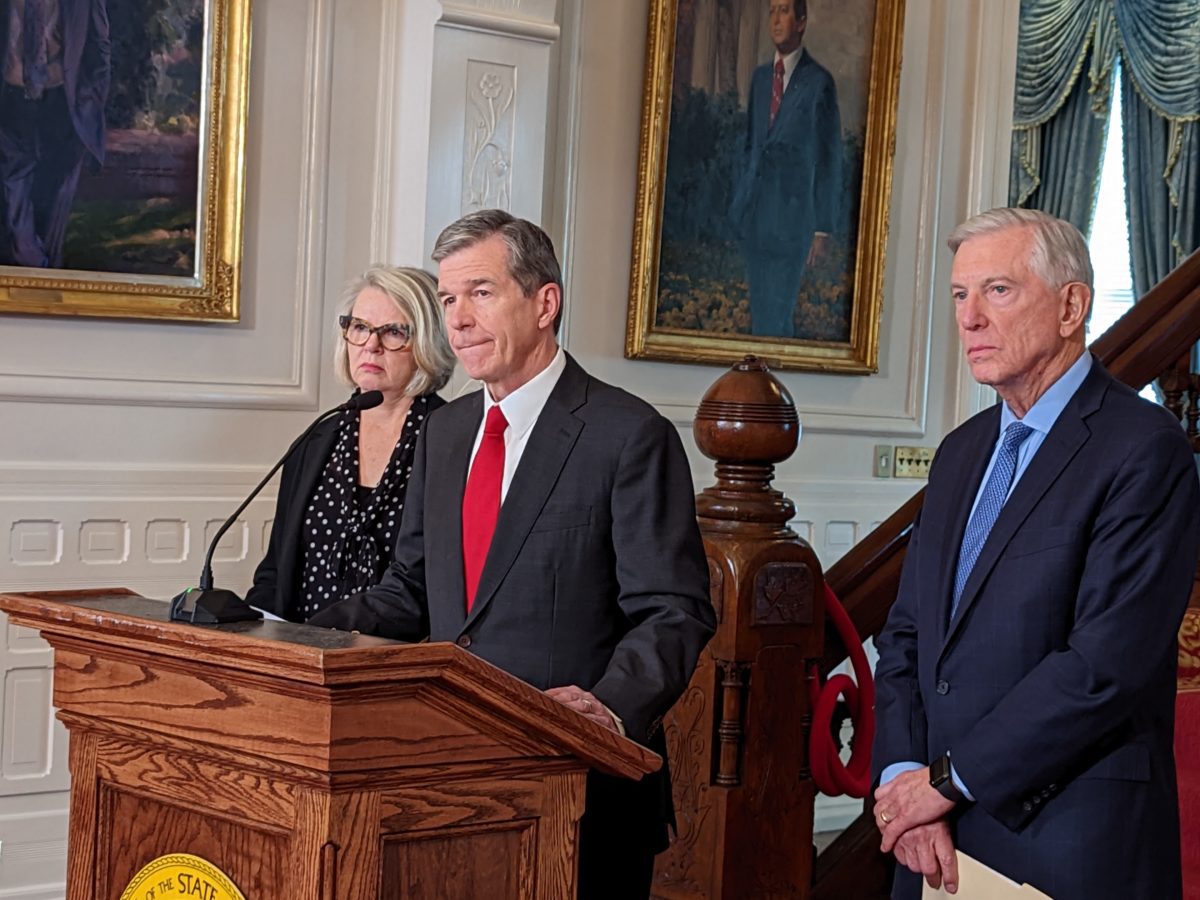

Share this story
- The commission, co-chaired by former UNC System leaders Tom Ross and Margaret Spellings, will specifically look at how the leadership appointment process can be reformed. #nced
- "There are signs of trouble that come when all of the appointed leaders are chosen by too few, signs of undue political influence, bureaucratic meddling, and singularity of political thought," Gov. Roy Cooper said. #nced
|
|
Gov. Roy Cooper announced Tuesday, Nov. 1 that he is creating a commission to study how the governance of public universities in North Carolina can be reformed.
The commission, co-chaired by former UNC System leaders Tom Ross and Margaret Spellings, will specifically look at current appointment methods for the Board of Governors and various boards of trustees around the state.
“There are signs of trouble that come when all of the appointed leaders are chosen by too few,” Cooper said at a Tuesday press conference, “signs of undue political influence, bureaucratic meddling, and singularity of political thought.”
He said the people who appoint university leadership don’t reflect North Carolina’s political, racial, and geographic diversity. Members of the UNC System Board of Governors, which oversees the entire system, are appointed by the state legislature. The Board of Governors then controls appointments to the various universities’ boards of trustees, as well as chancellors and presidents.
Earlier this year, UNC System President Peter Hans successfully proposed a change that allows his office to propose two candidates during president and chancellor searches. The Board of Governors, however, still gets final say over these appointments.
Republicans have maintained control of the state legislature for the last decade.
Spellings, who was president of the system from 2016 to 2019, said this commission will strengthen not only the universities but the state as a whole.
“For centuries, we have looked to our higher education institutions to generate ideas and innovation, serve as centers of enlightenment in our communities, and above all, to educate the next generation of leaders and citizens,” Spellings said. “Our public universities especially must be places where every person feels welcome, heard, and represented.”
Tom Ross, president of the system from 2011 to 2016, underscored the role the university system plays in the state’s economy.
“The University of North Carolina System is an unparalleled asset for our state, and a comprehensive review to ensure that our governance structure is designed to enhance these institutions and meet the rapidly changing demands of the future is the right thing to do,” he said.
This isn’t the only active commission studying the state’s various education systems. The General Assembly convened a commission that spent the last year traveling the state and studying the future of the state’s K-12 system, with a report expected to be released in the coming months.
The UNC System is comprised of 16 public universities that serve nearly 250,000 students each year.
Any changes to how university leaders are appointed would have to be approved by the legislature. Cooper said his goal is to get a proposal ready for consideration by the end of next year’s long session.
This executive order just deals with the state’s public university system. The governor has the authority to appoint members to the State Board of Education and the State Board of Community Colleges.
Additional appointments to the commission will be announced in the coming weeks, Cooper said. You can read Cooper’s full executive order establishing the commission here.



